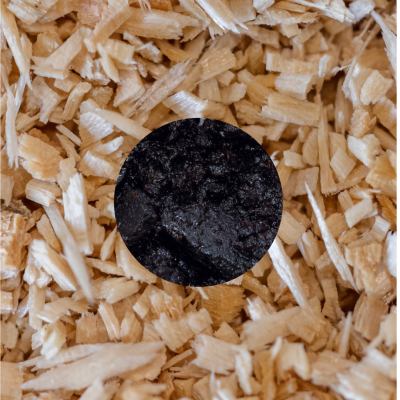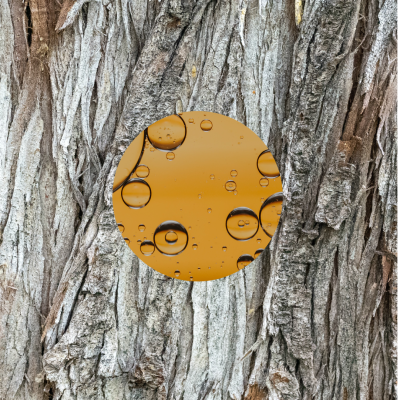Sustainable chemicals of the future
Microcrystalline cellulose
Our microcrystalline cellulose is extracted from responsibly-sourced softwood, using an environmentally-sound ultrasonic process that relies on mild organic acids. It is a partly depolymerised cellulose with shorter, crystalline polymer chains, and an average particle size of ~100 μm.
Microcrystalline cellulose has strong binding properties, making it a reliable filler and excipient in pharmaceutical formulations, personal care and food and beverage applications. It also has wide-ranging technical applications.

Lignin
Our ultra-clean ultrasonic technology also extracts high-purity natural lignin from spruce softwood, with a low molecular weight (<1,000 g/mol) and solubility in a range of common solvents.
Lignin is known as nature’s binder, acting as a glue between cell walls in trees to provide structural integrity and compression resistance. This organic aromatic polymer also has hydrophobic, flame retardant, antimicrobial and UV-resistant properties, and is the only potential bio-sourced replacement for the toxic petrochemical phenol, which is widely used in resins and composites. Its reactivity and ultra-low sulfur content make this product superior to Kraft lignin for use in materials, resins, coatings and chemical additives.

Hemicellulose Hydrolysate
The third component of softwood that can be extracted through ultrasonic processing is hemicellulose, a mixed sugar syrup containing monomeric mannose, xylose, arabinose, galactose and glucose. These monomers are obtained using a mild organic acid extraction process.
There are wide applications for hemicellulose sugars as platform biochemicals, including fermentation, dehydration to furfural – a compound that adds valuable properties such as corrosion resistance, thermosetting and physical strength to furan resins – and low calorie sweeteners, because mannose, xylose and arabinose are rare nutraceutical sugars with a low GI impact. Hemicellulose sugars can also be converted to alcohols, xylitol and sorbitol for pharmaceuticals, dental care, and food and beverage applications.

Product Request
Please either complete the form below with your company name or research organisation and which product sample and data sheet you would like. Alternatively, send an email to info@sonichem.com
